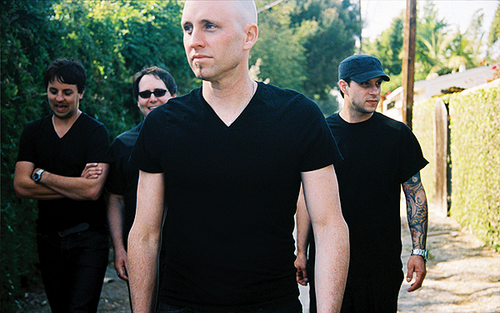

As the familiar acoustic/electric, quiet-loud formula is applied yet again, Scannell indicts his band with another trite lyricism. "Echo" is at once Go's hookiest and most opaque moment. In 1999, they released their breakout album, Everything You Want, which went on to sell more than two million copies. It's tiresome to keep making comparisons, but it's impossible not to when Vertical Horizon smothers whatever college rock identity it may have once had in layers of insipid radio filler. Vertical Horizon released three albums independently (There and Back Again, Running on Ice, and Live Stages) and toured extensively before signing with RCA Records in 1998. "I'm Still Here" seems to cross the band's 1999 hit with Michelle Branch's "Everywhere," which was produced by Go helmer John Shanks. The album, a follow-up to the band's double platinum Everything You Want, continues to expand upon the band's alternative and pop rock sound while moving into more hard rock directions as well. Matt Scannell and Keith Kane first performed together at Georgetown University, where the two undergraduates honed their.


"I can't wait until you let me down," Matthew Scannell sings over store-bought modern rock. Go is the fourth studio album by alternative rock band Vertical Horizon. Launched in 1991 as a folk-based acoustic duo, Vertical Horizon gradually molded itself into a slick pop/rock outfit, culminating in the band's brief (but significant) heyday at the turn of the 21st century. "When You Cry" stands in for "Everything You Want" and introduces the album's catch phrase psychotherapy. Now, Vertical has returned with Go, an album that proves the band's lack of ideas wasn't a fluke, and reaffirms their status as third-tier imitators. In 1999, Vertical Horizon didn't have much with which to follow its breakthrough single, "Everything You Want." And yet the song's percolating groove provided enough sustenance for listeners led astray by Secret Samadhi, Live's pompous follow-up to Throwing Copper. Goofy nu-metallers may make music for chest-bumping in the arenas, but these guys are stuck writing soundtracks for Pottery Barn. In the beige world of hot adult contemporary, interchangeable white guys rock test-marketed riffs under a relatively distinguishable frontman's greeting-card haiku. While the metal guys' latent high-school anger and crushed-velvet posturing is pretty hard to take, at least they get to turn up the amps and kick out the jock jams. As vapid as nu-metal became once the pump backed up and started spewing its smelly backwash onto the stages of Ozfest, the fresh-scent hallways of what the industry calls "hot AC" might be just as empty.


 0 kommentar(er)
0 kommentar(er)
